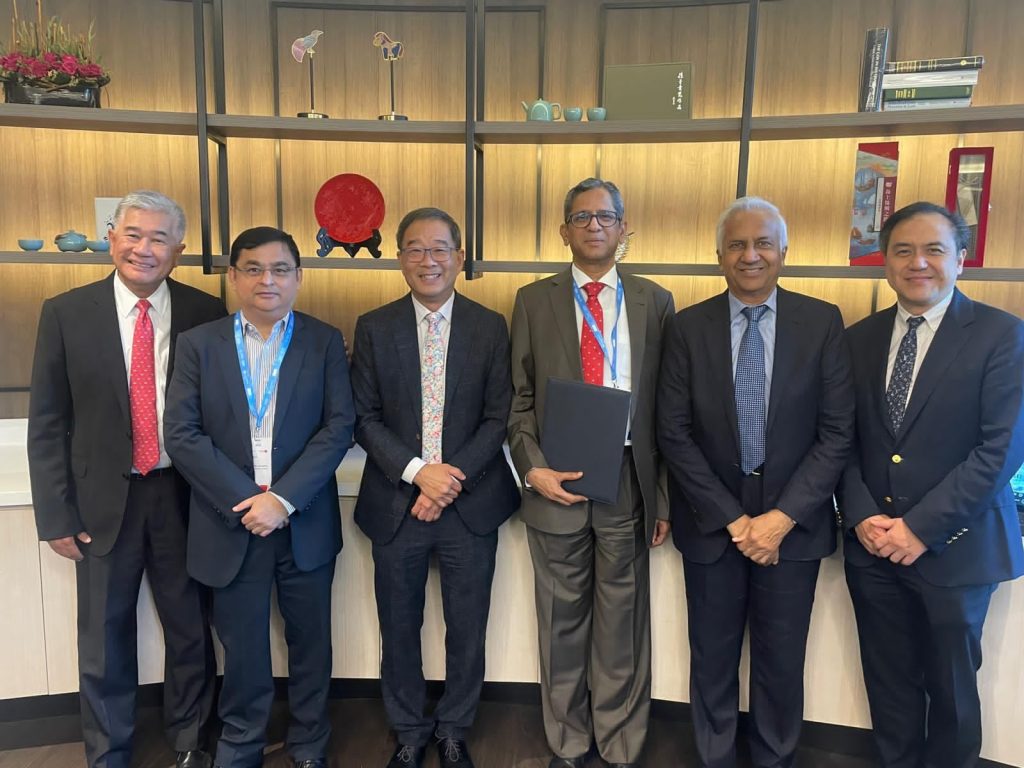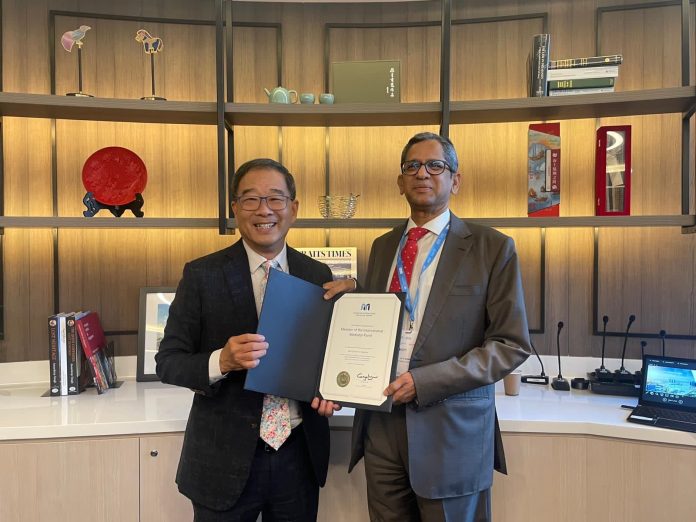Former Chief Justice of India (CJI) N.V. Ramana has been appointed as a member of the International Mediation Panel of the Singapore International Mediation Centre (SIMC).
The announcement was made by SIMC chairperson George Lim, who presented Justice Ramana with the letter of appointment in Singapore on Tuesday.
Justice Ramana has gone to Singapore to take part in the “Singapore Convention Week”, the annual convention organised by Singapore’s Ministry of Law, the United Nations Commission on International Law (UNCITRAL) and over 20 partner organisations.

During his visit to the Lion City, Justice Ramana met the representatives of SIMC and four Indian corporate majors – Tata, Reliance, Mahindra and Aditya Birla groups on Tuesday.
These top four Indian multinational corporations (MNCs) have come forward to sign the ‘Declaration of Intent’ to support mediation at the initiative of Justice Ramana.
During his tenure as a judge, Justice Ramana had strongly advocated for adoption of alternative resolution methods to resolve disputes.
He had said in July 2021 that mediation was deeply embedded in Indian ethos and was prevalent in India much before the arrival of the British.
As per Ramana, prescribing mediation as a mandatory first step for resolution of disputes would go a long way in reducing pendency of cases before courts in the country.
He had also evoked the Mahabharata during an event in April 2022, stating that if Lord Krishna had succeeded in mediation to prevent the Kurukshetra war, many lives could have been saved.
The Singapore Convention Week is a five-day annual event, which started in the island nation this year on August 28 and will culminate on September 1.
As per the official website of Singapore Convention Week, the theme of this year’s event is “Tomorrow’s World Today: Leading the Future of Dispute Resolution” .
K. Shanmugam S.C., Minister for Home Affairs and Minister for Law in Singapore, said that the event will witness a galaxy of international thought leaders from various fields, such as dispute practitioners, general counsels, academicians and government officials, exchanging views and ideas, besides exploring collaborations and possibilities to shape the future of dispute resolution.


